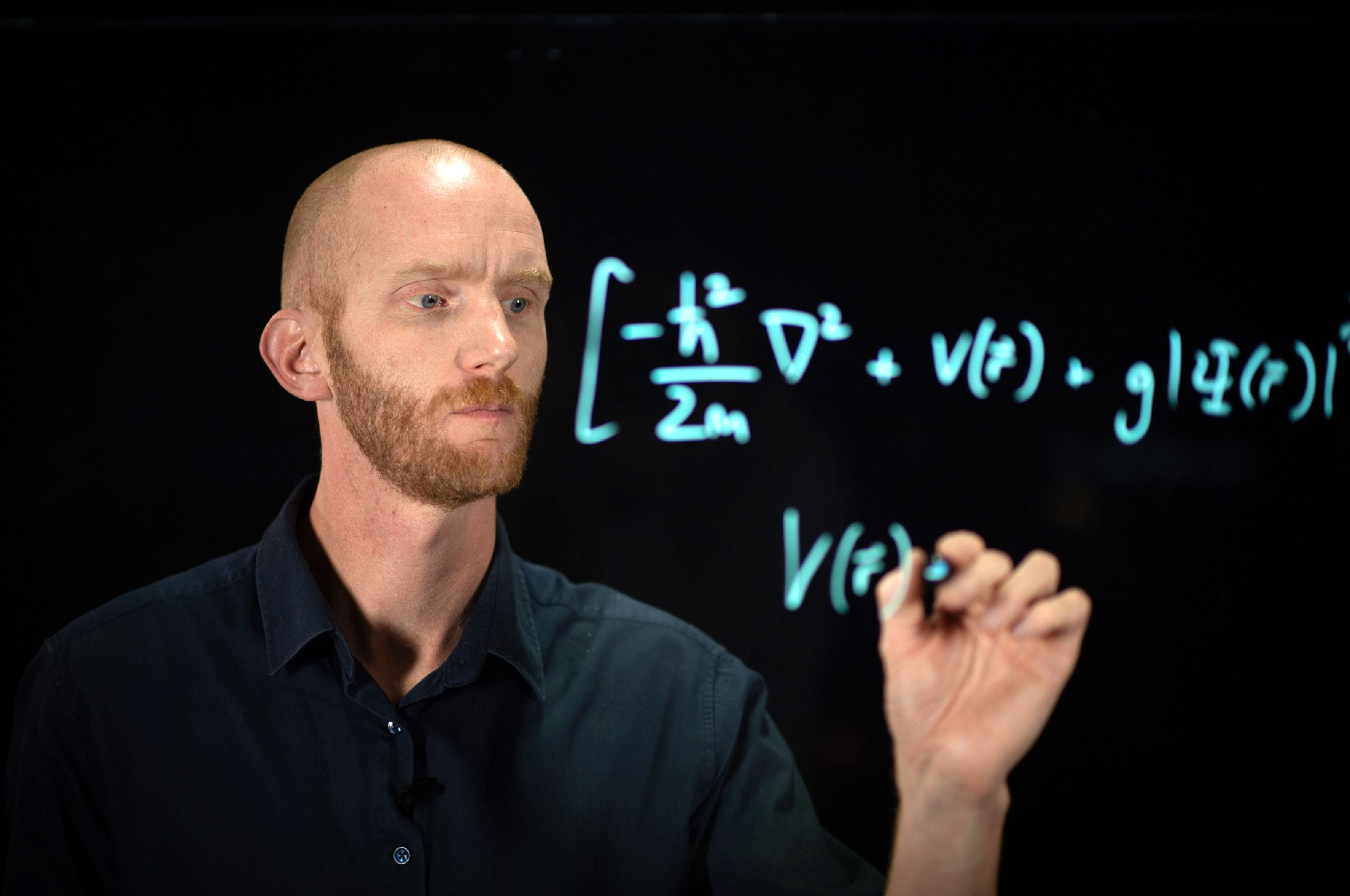Research at Bendigo

We're dedicated to fostering excellence while focusing on the big issues.
Current research by Bendigo academics is paving the way for a healthier and more prosperous future.
Our current areas of research are:
- food, agriculture and environment
- health and wellbeing
- digital technologies.
The La Trobe Rural Health School supports research to improve the lives of rural, regional and remote Australians, while our engineering academics are making world-first breakthroughs in our new state-of-the-art labs.
Some of our projects that have gained essential community and government support include:
Researchers at our campus Dog Lab have partnered with the Department of Veteran’s Affairs to undertake a pilot study to better understand how assistance dogs could help Australian war veterans overcome post-traumatic stress disorder.
Our staff and students have fully embraced the project, with many volunteering as puppy raisers. As such, the pitter-patter of puppy paws can be heard around campus as the dogs accompany their raisers to offices, lectures and classes throughout each day.
The La Trobe Holsworth Research Initiative is building on our campus’ research strengths in exercise physiology, physical activity and rehabilitation. We’re pioneering a project to increase Australians’ activity levels, and improve physical function and performance.
Bendigo residents, Carol and Bill Holsworth, have made this research possible thanks to their philanthropic donation through the Bendigo Tertiary Education Anniversary Foundation.
Violet Vines Marshman Centre for Rural Health Research
Established in December 2019 following a $3 million investment from the VV Marshman Charitable Trust.The centre is transforming rural health outcomes through research, collaboration and community engagement, by undertaking research aimed at narrowing the gulf between metropolitan health outcomes and those in regional, rural and remote areas.
The Bendigo Campus is home to one of Australia's most powerful flourescence microscopes, which was purpose-built by biophysicist Dr Donna Whelan.
The microscope is allowing Dr Whelan to research fundamental biology and DNA-damaging diseases such as cancer.
Dr Christina Keightley's research team investigates the cell biology and molecular mechanisms of how and why blood development fails in the absence of the gene Zbtb11, using their unique zebrafish models of Zbtb11 deficiency.
This understanding will provide important foundational knowledge for effectively manipulating blood cell outputs in the clinic to treat disease.
La Trobe University physicist Dr Russell Anderson has worked with collaborators from the Institute for Photonics and Advanced Sensing in Adelaide to discover a way to blow the world's 'hearing' of magnetic fields out of the water.
Their discovery is akin to listening to a whole orchestra of magnetic fields rather one static tone, as has previously been the case. This is important because many objects of interest—brains, drones, submarines—emit magnetic fields that are neither static or single-tone.
The sensor reveals the rich symphony of real-world signals, with a bandwidth 1000 times greater than existing state-of-the-art sensors.
Dr Anderson’s breakthrough is just one example of the quantum physics research being undertaken in Bendigo.